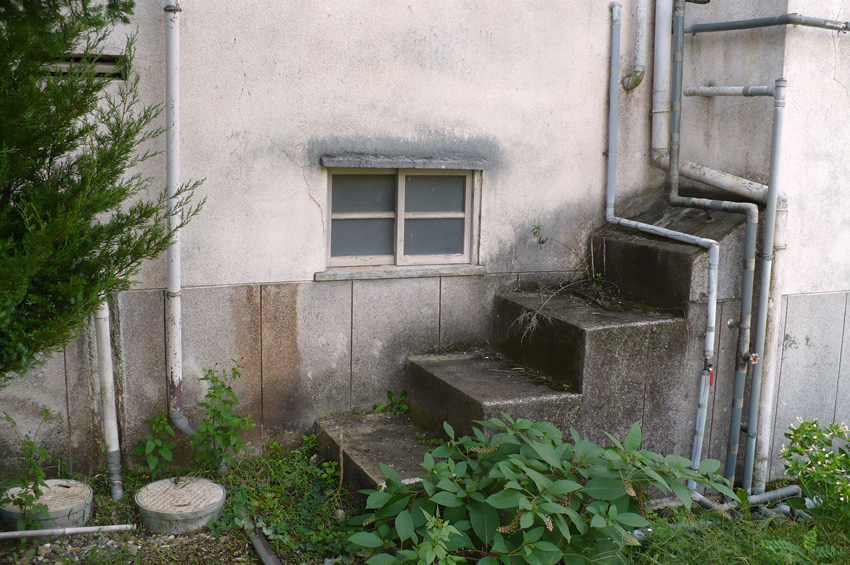I capitalised it in the title because of its etymology, and for emphasis. I think I would use lower case in regular usage.
More examples:
https://www.messynessychic.com/2017/01/18/the-inexplicably-fascinating-secret-world-of-thomassons/
https://kyotojournal.org/kyoto-notebook/kyoto-tomason-the-hunt-for-hidden-hyperart/
https://www.amusingplanet.com/2017/04/thomasson-architectural-relics-that.html
https://commons.wikimedia.org/wiki/Category:Hyperart_Thomasson



I grew up in a part of the northern Midwest where just about every house built before the 1940’s has a small steel door in the foundation, usually on the same side as the driveway. It was used to deliver coal which was shoveled through the door, into a bin in the basement and eventually burned to heat the house, most likely in a big “octopus” furnace or a boiler.
It always fascinated me that so many houses had this one little thing that was once an incredibly necessary feature that was eventually shut and sealed from the inside, probably never to be opened again.
I feel the same about my apartment door (my apartment was built in the 1970s), it has a mailbox attached to the inside of it and there is a slot in the door to put mail in it from the outside, it gets rarely used since most of the mail is delivered to the newer mailboxes installed by the stairs on the first floor, but If I’m not home, the delivery driver usually drops the slip in there.
However, below the mailbox is another, smaller, door that is intended specifically for newspapers. I tried to open it out of curiosity, but the latch was quite stiff and was painted over at some point, so probably the previous tenant also didn’t use it. That means that small door has probably been closed for at least a decade, if not more, and probably will remain closed forever.
Is that a regional thing? In my part of Europe virtually 60-70+ year old house comes standard with it. But the fact that English lacks a word for “soupirail” (or that Wikipedia only has a page in French and Dutch) leads me to believe it might not be a very widespread practice outside of Western Europe.
It often gets repurposed as an air vent, for general ventilation and/or as a clothes dryer exhaust. I rarely see them permanently blocked out.
I’ve heard it referred to as a “coal chute”. They were probably common in quite a few regions in the US. North/Midwest and North East if I had to guess. Those are areas with lots of houses that were built in the late 1800’s - early 1900’s when central heating was really becoming commonplace. Houses would have typically had a basement and the town would have needed rail access to supply the sheer volume of coal needed.
I think oil became a more common fuel source after WWII because it was cheaper and easier to handle. Lots of the same houses with those little doors also have a small hole that someone cut in the middle of the basement stairs so they could fill the oil tank that was installed under the stairs. Gravity furnaces were not very efficient but they were easy to convert to oil burning.